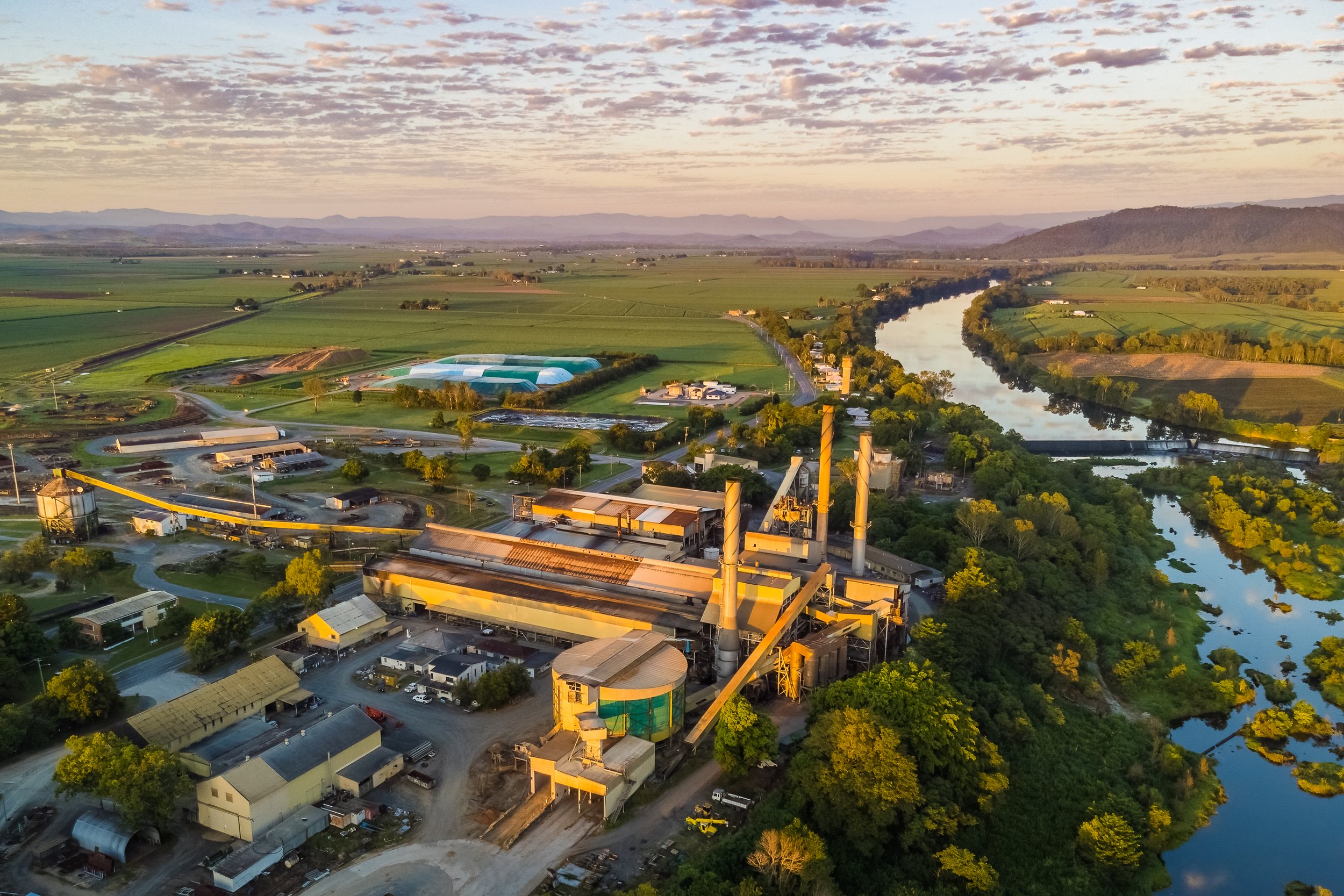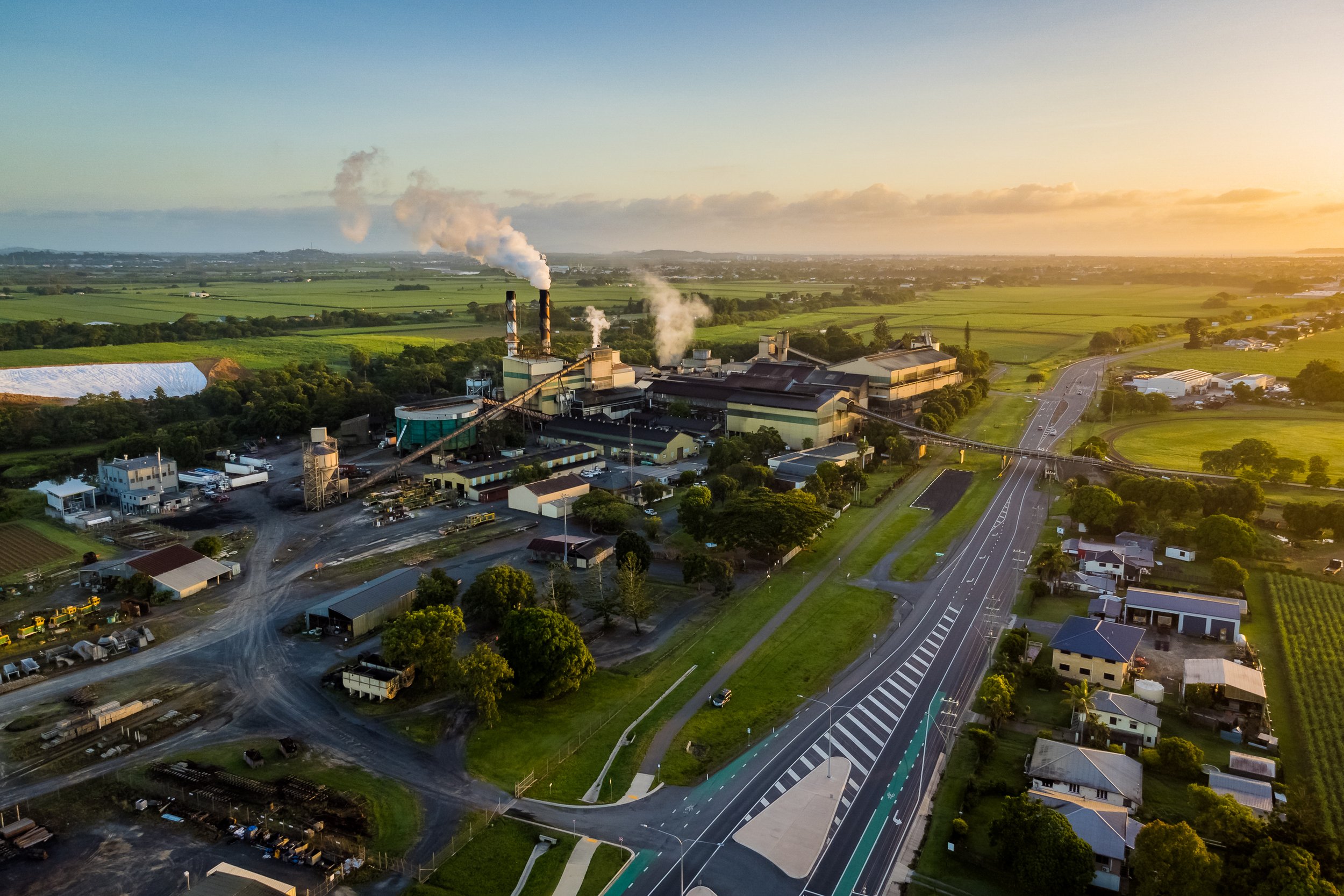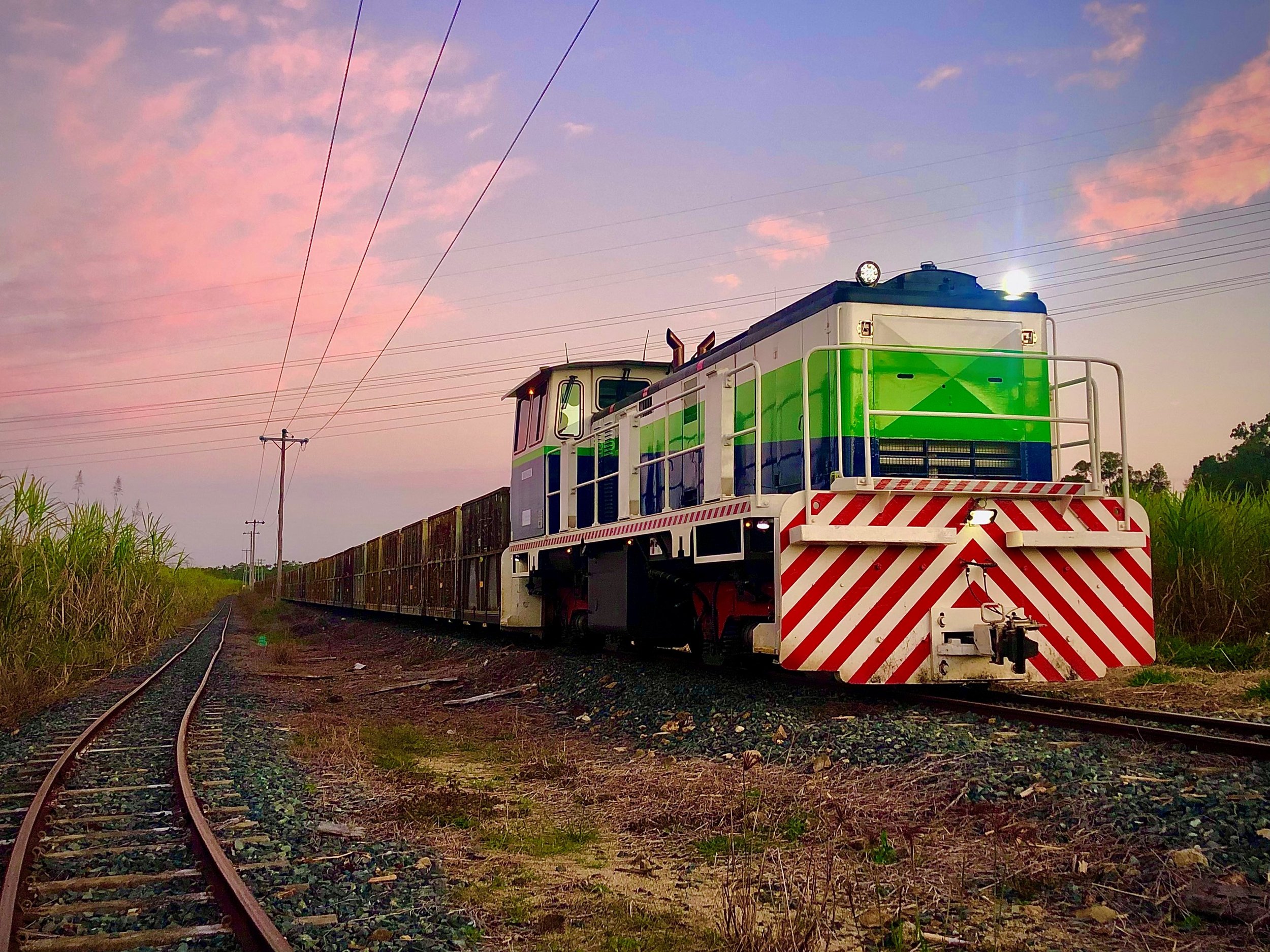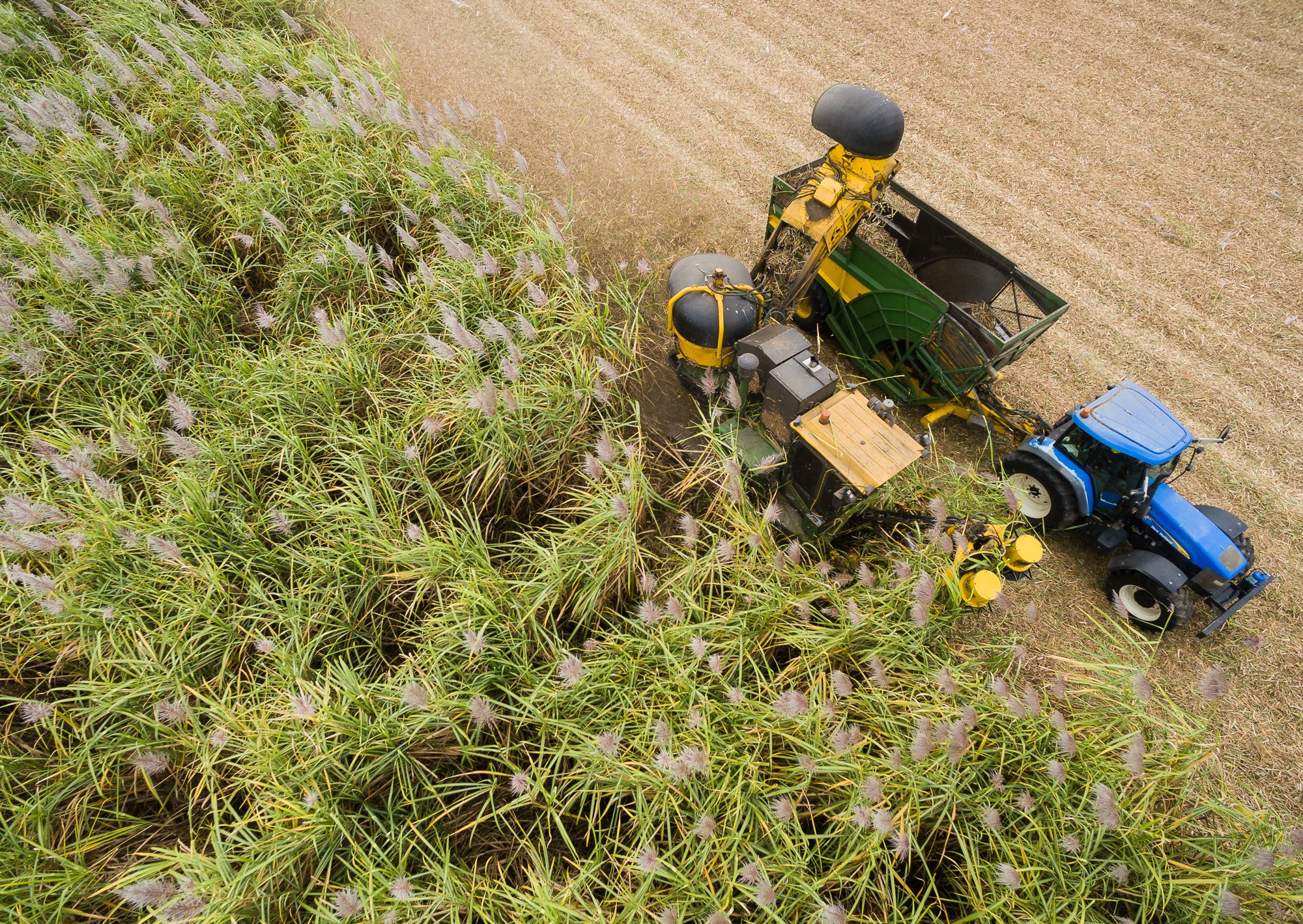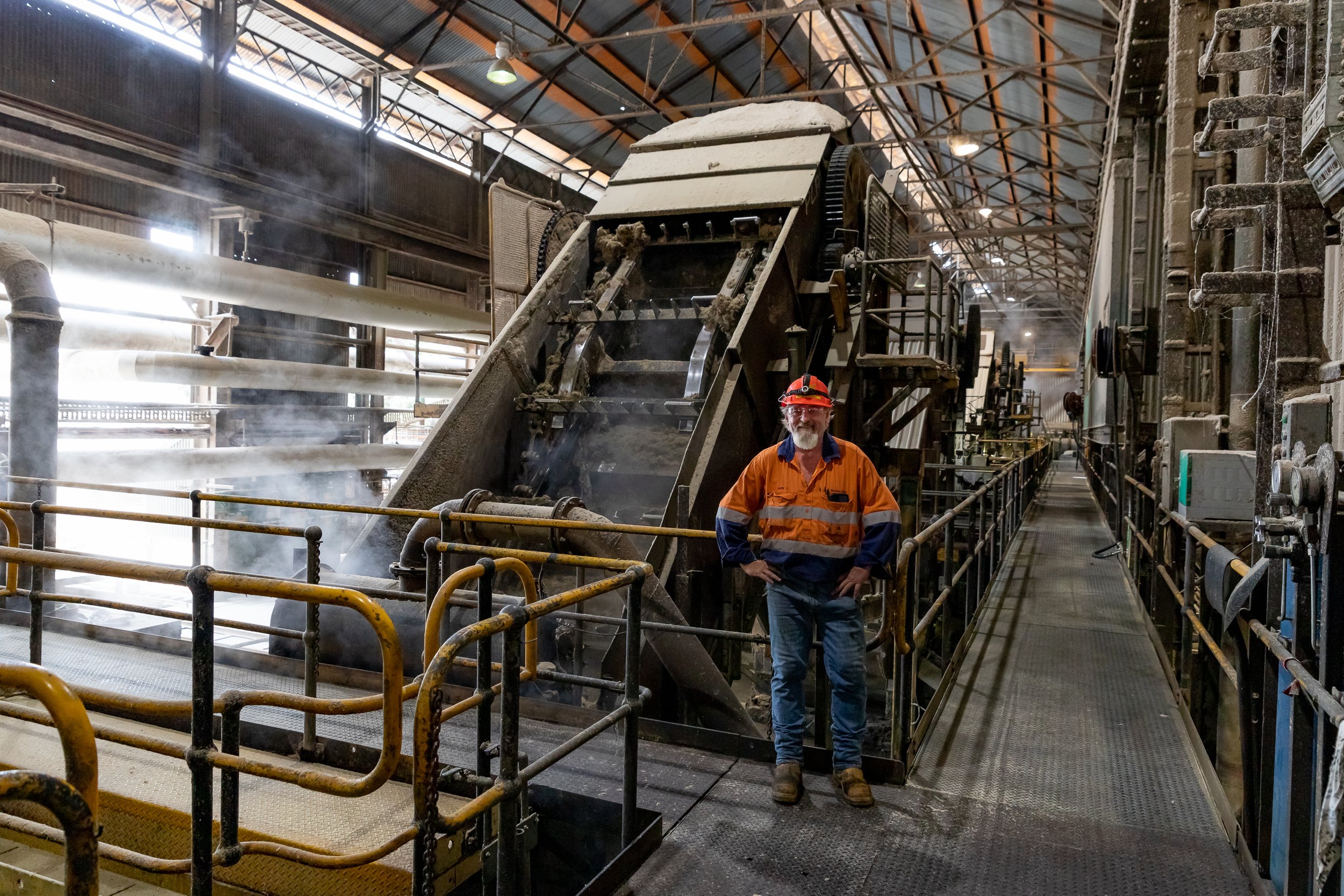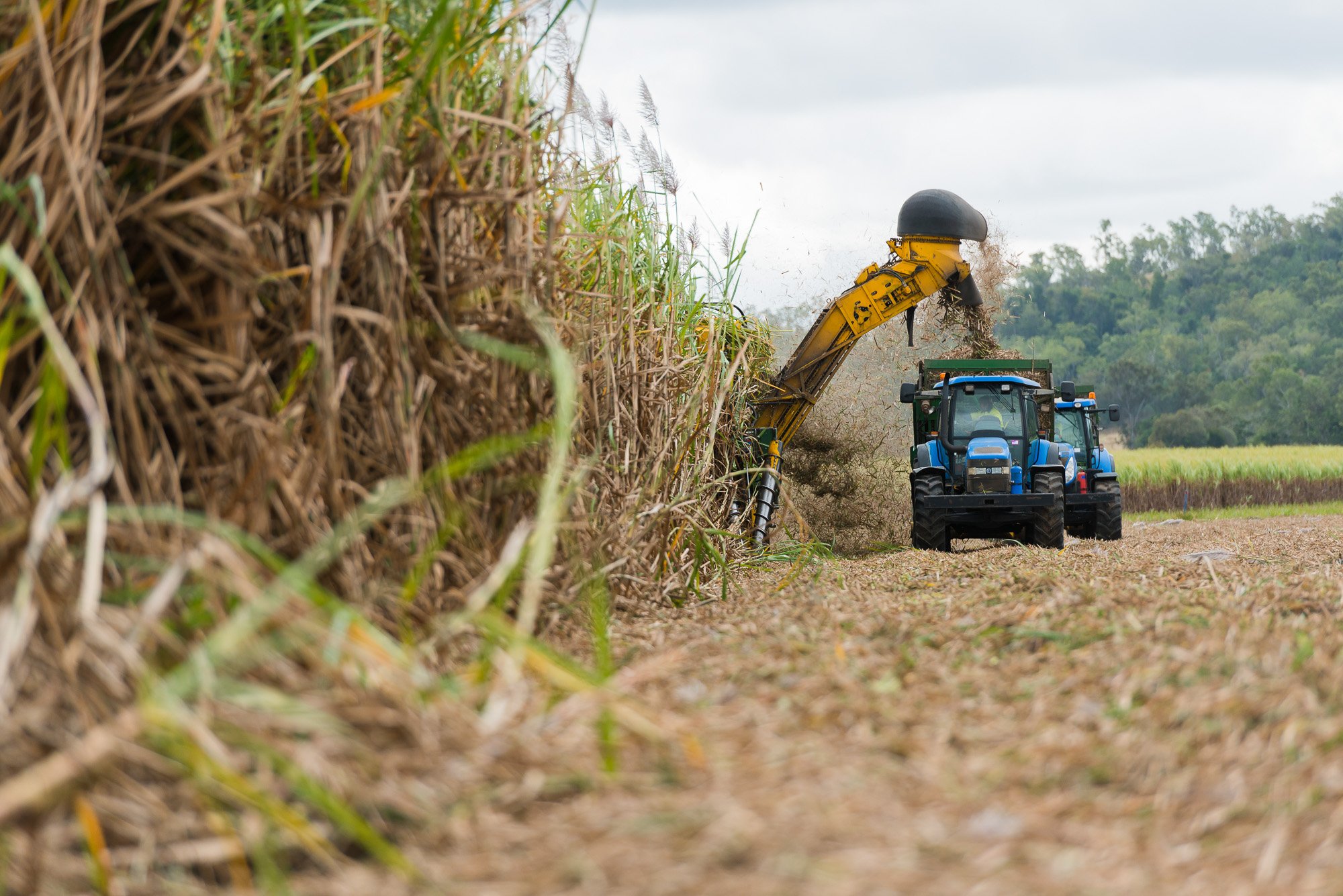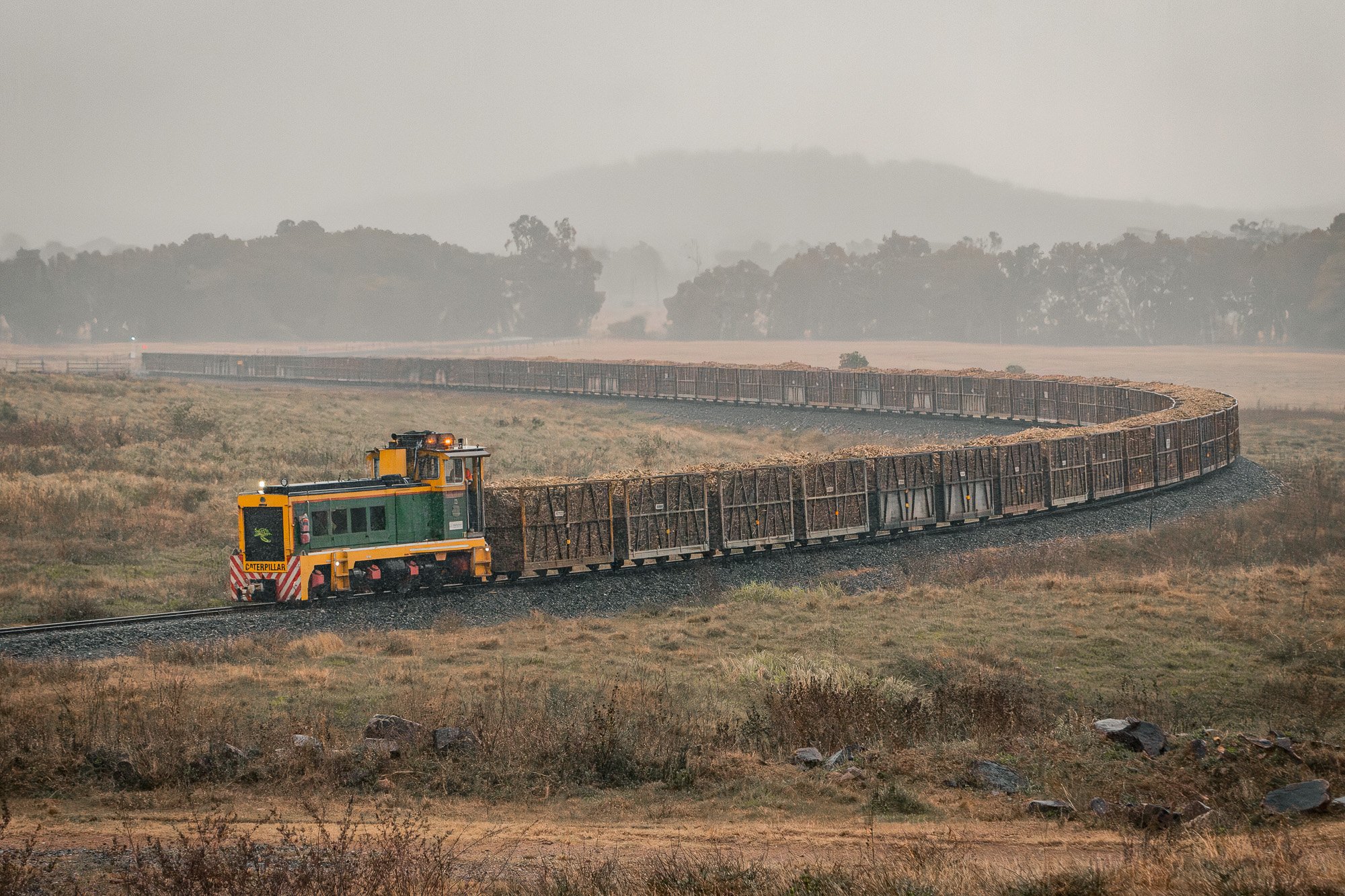
Expertise
Our History
for more than 140 years
Mackay is THE Sugar City
Our history, spanning more than 140 years, has seen Mackay Sugar develop into Australia’s second largest sugar manufacturer as well as an integral part of our local community, economy and industry. Our extensive expertise has been shaped by changes in ownership, financial structuring, an increasing world demand for sugar, and innovation with sustainability at the forefront.
Several independent historical publications regarding Mackay Sugar, our mills and our contribution to the region and industry are available for purchase through local authors.
Est. 1883
Farleigh Mill
Farleigh Mill was built in 1883 by Sir John Bennett Laws, founder of the world's oldest agricultural research station at Rothamsted UK, which is still functioning. The mill originally operated a plantation; however, cultivation was suspended after a few years. The mill was sold to the Farleigh Estate Sugar Co Ltd in 1900 and improvements were made to crush cane previously crushed at several other Mackay district mills - Ashburton, The Cedars, Coningsby, Pioneer, Richmond, Nindaroo, Habana and Dumbleton.
In 1921, Farleigh assumed responsibility for crushing cane from the Rosella district, south of the Pioneer River, after the CSR Company discontinued operations at the nearby Homebush Mill. The extra cost and commitments involved in this transaction, together with several poor seasons, forced the company into liquidation in 1926. The mill was then purchased by its growers and operated on a co-operative basis.
In 1927, the Homebush suppliers were transferred to the Racecourse Mill and Farleigh's crops were enhanced by the development of rich scrublands in the Kolijo-Calen district, and other areas to the north served by the state-run North Coast railway. In 1956 construction work began on the mill's own rail line to the north coast areas, due to the need to improve cane transport to cope with the increased throughput and to reduce the constantly increasing expense of using the government-owned rail line. The line was completed in 1961.
Farleigh Mill growers voted to merge with other Mackay district mills to form the Mackay Sugar Co-operative Association Ltd in November 1987.
Mackay Sugar committed $14 million to extensive upgrading of the Summit section of the rail line in 1997 to eliminate several kilometres of steep grades. The upgraded line is able to cope with increased tonnages and deliver transport cost savings and scheduling flexibility to the mill.
Extensive reconstruction and modernisation of the mill's plant and machinery has been undertaken since the 1940s to increase output and improve efficiency.
Est. 1885
Marian Mill
Marian Mill was first built in 1885 but closed after a few years. The Marian Central Mill Co Ltd erected a new mill in 1894 under the Sugar Guarantee Act, and the first crushing took place in 1895.
In 1966 the shareholders of Marian Central Mill Co Ltd voted to sell the assets and liabilities of that company to the cane farmers supplying the mill, who formed the Marian Mill Co-operative Society Limited.
On February 1, 1988, Marian Mill, together with Cattle Creek, Farleigh, North Eton and Racecourse mills, amalgamated and purchased Pleystowe Mill to form the Mackay Sugar Co-operative Association Limited.
Since then, Marian has been significantly improved to increase its crushing capacity, and its annual throughput of crops in excess of 2 million tonnes, have earned it a ‘super mill’ status within the Australian sugar industry. Marian crushes crops previously supplied to the North Eton, which closed in 1989, and Cattle Creek Mill, which closed in 1990.
Est. 1889
Racecourse Mill
Racecourse Mill began operations in 1889 under the Racecourse Central Mill Company Limited. In 1927, the Racecourse Co-operative Sugar Association Limited was formed to take over the former company's assets and an agreement was entered into with Farleigh Mill management to resume Farleigh's Homebush area cane supply in return for the Calen/Kolijo lands supplying Racecourse Mill.
Racecourse Mill growers voted to merge with other Mackay district mills to form the Mackay Sugar Co-operative Association Ltd in November 1987.
In 1991, Racecourse Mill was chosen as the site for the refining joint venture between Mackay Sugar and ED & F Man. Racecourse Refinery was constructed using the most modern equipment and methods in the world. It was commissioned in 1994 and its output is regarded as the best quality refined sugar in Australia. The refinery is powered by Racecourse Mill's boilers. It produces about 400,000 tonnes of refined white sugar annually sold under the CSR label.
Est. 1869
Pleystowe Mill
Pleystowe Mill is located about 18 kilometres west of Mackay, on the southern bank of the picturesque Pioneer River. The Pleystowe Sugar Plantation began operations at the end of 1869, when the land where the mill now stands was purchased from a selector who had been growing cotton and tobacco before sugar cane was introduced into the district.
Crops were first planted there during 1870-71, with machinery installed simultaneously. In 1872, Pleystowe Mill's first manufactured sugar was sent to Mackay by horse team for shipment to Brisbane.
Between 1884 and 1903, the mill's ownership changed twice, and its operations extended until in 1903 the Queensland Government took possession due to the mill's inability to make financial repayments on monies loaned by the government for the mill's extensions. The government relinquished control in 1905 when the mill's bank guaranteed the debt.
Damage caused by the 1918 cyclone to the adjoining mill, The Palms, was so extensive that its cane supply was sent to Pleystowe to be crushed. In 1925, the two mills were amalgamated under the name of Amalgamated Sugar Mills Limited.
This company became part of CSR Limited in 1975, following the absorption of The Australian Estates Co Limited group of companies by CSR Limited.
In January 1988 Mackay Sugar Co-operative Association Limited purchased Pleystowe Mill and, in 2009 the mill was closed, and the plant and equipment integrated into our existing mills. The demolition of Pleystowe mill commenced in 2021, with the original stack being retained.
From Co-operative to Incorporated Company
In 1978, Racecourse Co-operative conducted a feasibility study on rationalisation of the district's co-operatives and in 1984, the district's milling co-operatives set up a merger committee for an in-depth study of a five-mill merger.
Progress seemed to be good, when, in late 1986, all the mills signed a memorandum of understanding. The process derailed soon after, due to disagreement about conditions in the document. The merger committee renewed its efforts in 1987 and, after concentrated negotiations, a successful vote by shareholders of each co-operative saw the amalgamation of the district's five co-operatives and the purchase of the CSR Limited-owned Pleystowe Mill.
Mackay Sugar Co-operative Association Limited was finally incorporated on February 1, 1988 - a date of tremendous significance in the history of the Australian sugar industry. The merger had created a large financially viable co-operative sugar milling entity which would maximise the returns to growers from cane production and sugar manufacture, buffering shareholders from the difficulties faced by small ‘stand-alone’ co-operatives.
As part of its strategy for greater efficiency, two mills were closed and their plant and equipment integrated into the remaining mills. North Eton Mill was closed at the end of the 1988 crushing season and Cattle Creek, at the head of the Pioneer River valley, was closed in 1990.
Mackay Sugar became an unlisted public company in 2008. Our regional roots remain reflected in our ownership structure and a significant section of our shareholders are active sugar cane growers.
In 2019 one of Europe's leading sugar manufacturers, Nordzucker Group, became Mackay Sugar’s majority shareholder and continues to make significant investment in our plant and people, along with bringing a network of global ideas, innovation and opportunities to ensure the long-term sustainability of our business and Mackay’s sugar cane industry.



